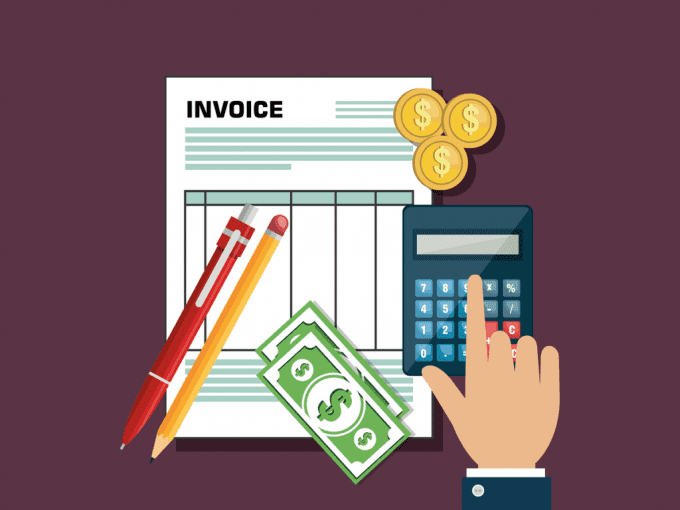As a startup, your business faces many challenges to finding the success that you believe is possible. None of your complications and challenges are more pronounced than you need for funding and finding the money you need to get everything off the ground.
From renting an office or production space, to buying goods and equipment, to hiring staff, and paying for advertising, all aspects of a viable work requires money.
Unless you are already independently wealthy or were left with a sizable nest egg from a generous relative, chances are good you are going to have to do the work necessary to get the funding you need.
Here are 10 unique and creative waves to consider when you are looking to fund your business.
1. Invoice factoring

Invoice factoring is a fantastic financing solution that helps companies stabilize cash flow by unlocking the cash sitting in unpaid receivables. This is also known as accounts receivable factoring and this process essentially treats invoices as collateral. These are then sold to factoring companies such as factorfinders.com. From there, your company received cash in advance with each invoice that is sold.
The amount of capital that is available to you and your business grows with your business. As long as you have invoices that you can factor, funding is available to you!
2. Crowdfund
Crowdfunding has become quite popular in recent years and there are a handful of some really great crowdfunding sites that you can consider using to successfully get the first round of funding that you need.
Kickstarter is likely the most popular website that has become famous for helping inventors, artists, and innovators get the initial capital they need. Indiegogo is also quite popular, as is RocketHub, Fundable, and Fundly.
One of the things to keep in mind when it comes to crowdfunding is that typically these funding campaigns come with deadlines and limits. If you do not meet your limit at the deadline, all the money you have been funded will be returned to those who helped fun.
That being said, one way to make sure that you get all the money you have earned is to simply donate yourself the remaining funding that you need. Alternatively, you could also be good with Indiegogo’s new offer that has no end dates. Similarly, RocketHub doesn’t force you to return money you earn even if you do not meet your threshold.
What matters most is that you identify what amount of money you need and which platform best fits your needs.
3. Angel investors

Angel investors stand out from other types of funding options because they are always on the search for the next practice to invest their money in.
In fact, many of the biggest tech companies in the world, such as Google and Yahoo were funded in large part by angel investors early on. At its most basic deal, taking money from an angel investor will lead to that investor getting equity in your company.
Angel investors and any related financial transaction must be registered with the Securities and Exchange Commission.
4. Small Business Administration Loans
The United States government has a clear interest in helping small businesses grow and expand. That leads to a work having great hiring power, paying more taxes, and overall adding to the state and national economy. As a result of that fact, Small Business or SBA loans offer money entrepreneurs need to get their business off the ground.
If the trade that you are trying to start is a non-profit or educational institution, you may also want to consider SBA grants.
5. Venture Capitalists

Not so dissimilar from angel investors, venture capitalists use the money they have to invest in up-and-coming businesses that are just getting off the ground but have high potential for growth and financial return in the near and distant future.
Venture capitalists will usually look for a share of equity in return for their investment but are also typically interested in having some impact on the direction of the company going forward. The reason why is because VCs typically have quite a lot of experience with this kind of work and likely trust their instinct when it comes to how to best grow a company.
6. Personal financing
There is now doubt that starting a business of your own is a high-risk, high-reward mission. With that in mind, chances are high that you will at some point have to invest some of your own money into your work. If you have a lot of money worth of savings or assets that you can liquidate to help fund your field, you will probably want to consider doing just that.
The reason why is because investing a certain amount of your own money will not only help you secure an unsecured business loan, it will also help you gain funding from third party investors or lenders once they see that you have ponied up some cash of your own.
If you don’t have money of your own, consider refinancing your mortgage and what the positives and negatives of that kind of decision could bring.
7. Microloans
Microloans are typically reserved for non-profit organizations. They are granted to organizations and institutions who would not normally qualify for a traditional loan from a bank. Instead of giving the donation to a given company, microloans instead allow individuals to invest in economic opportunities. Not only are microloans very popular for non-profits, but also in smaller and developing countries as well.
8. Purchase order financing
Many different factors can have an impact on your business’ cash flow, that includes seasonality, as well as supply and demand.
For example, some companies may find themselves not able to fulfill a large order because they simply do not have supply necessary to do so. Another possible reason for a purchase order financing is if your work is dependent on the needs of specific seasons.
What purchase order financing offers is a way to get an advance so that your company can purchase the materials it needs or pay for the upkeep necessary during a down season so that you can thrive in the future.
Companies that usually qualify for purchase order financing are those that deal in manufactured goods rather than services and that stand to make a margin of at least 20% on the sale.
9. Family and friend loans

Don’t be afraid to ask those closest to you for some much-needed financing to get your company off the ground. If you truly believe in your startup and simply need some money to start making the important moves that can lead to success, make a list of closer personal relationships that you may be able to use for funding.
Of course, it can get somewhat tricky to get this kind of financing, and you will want to set up professional terms so that your family and friends do not feel as though they are simply giving you money and getting nothing in return.
10. Product presales
If your trade is solely reliant on selling a single product, the simplest and most straightforward way to raise the money to produce the product is to offer presales. By pre-selling your product, you will have the money you need to make your first wave of product, and you will also be sure not to make way too much product that you then have a difficult time selling.
The level of pressure when going this route can be a bit overwhelming. Because of that, you will want to take some time to think about the real ramifications of collecting money before you have any product ready. You will want to be sure that you can fulfill presales in a timely manner. If you do not, it is likely that customers will reach out in order to demand that they get their money back.
Other lending sources and conclusion

Using alternative lenders might force you to work a bit harder because you will want to be sure that you are doing business with a legitimate and fair vendor. Most often, these lenders exclude financial institutions such as banks and government lenders. That does not mean, however, that they cannot be completely legitimate and trustworthy.
Lenders such as PayPal, Kabbage, OnDeck, Can Capital, Prosper, and more are known to get small business owners and startup owners the financial liquidity they need to get their business far off the ground.
Whether you are looking at lending sources such as these, or any of the other options on this list, it is important that you do the necessary research to make sure that you are choosing the right source of financing for you and your business. You want to make sure that the choices you make today do not end up hurting you or your work tomorrow.
Another thing to keep in mind is that you want to have a good handle on your business’ finances before reaching out to some of these lending options. You will want to show lenders that your business is on the right track, and that you are responsible and organized enough to keep records of everything. Consider utilizing some form of financial software to keep track of everything and make it as easy to read for any possible lenders/investors who might be interested in helping you take your company to the next level.







